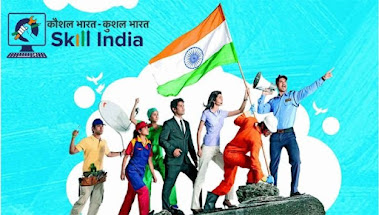Introduction
India's Independence Day, celebrated on August 15th, marks a pivotal moment in the nation's history. It signifies the day when India broke free from the shackles of colonial rule and embarked on a journey of self-governance and progress. As we commemorate this significant day, it's essential to reflect on how far India has come in terms of skill development, innovation, and economic growth. Today, as India stands on the cusp of numerous opportunities and challenges, its burgeoning skill landscape plays a crucial role in shaping its trajectory towards becoming a global powerhouse.
Post-Independence Skill Development
After gaining independence in 1947, India faced a host of challenges that required a skilled workforce to address. The leadership recognized the importance of education and skill development in nation-building. Institutions like the Indian Institutes of Technology (IITs) and the Indian Institutes of Management (IIMs) were established to provide world-class education and foster innovation. The focus on science and technology paved the way for India's advancements in space exploration, information technology, and pharmaceuticals.
Modernizing Skills for Contemporary Challenges
Fast forward to today, and India's dedication to skill development continues to evolve. The country's demographic dividend, with a large and youthful population, offers immense potential for economic growth. The government's initiatives like Skill India and Make in India aim to equip the workforce with contemporary skills that are aligned with the demands of the global economy. There's a growing emphasis on vocational training, entrepreneurship, and digital literacy to ensure that the youth can contribute meaningfully to the workforce.
Technology and Innovation: Catalysts for Growth
In the current era, technology has become a driving force behind economic growth and skill enhancement. India's prowess in information technology and software services has earned it a prominent position on the global tech map. The startup ecosystem in the country is thriving, with innovations spanning various sectors, including healthcare, agriculture, finance, and renewable energy. These startups not only contribute to economic growth but also create employment opportunities for a diverse range of skills.
Global Recognition and Collaborations
India's skill landscape has gained recognition globally. Indian professionals are making their mark in various fields, from research and development to arts and culture. Collaborations with international organizations and institutions further enhance the exchange of knowledge and skills. Such partnerships help India adapt to emerging trends while also contributing its unique insights to the global community.
Challenges and the Way Forward
While India has made significant strides in skill development, challenges persist. Disparities in access to quality education and skill training still exist across different regions of the country. Bridging this gap requires a concerted effort from the government, educational institutions, and the private sector. Additionally, as technology evolves rapidly, the workforce needs to constantly upskill to remain relevant and competitive in the global market.
Conclusion
As we celebrate another Independence Day, we are reminded of India's journey from a struggling post-colonial nation to a vibrant and dynamic economy. The growth in skills, coupled with technological advancements and innovation, has propelled India onto the global stage. However, the journey is far from over. It's imperative to continue investing in education, training, and research to ensure that India's workforce remains adaptable and capable of addressing the challenges and opportunities that the future holds. Just as the spirit of independence fueled the nation's progress in the past, today's commitment to skill development will be the cornerstone of India's growth story in the years to come.

.png)

